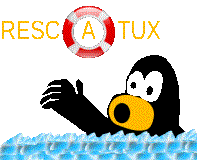vendredi 23 décembre 2016
jeudi 6 octobre 2016
dimanche 2 octobre 2016
jeudi 29 septembre 2016
samedi 17 septembre 2016
jeudi 11 août 2016
How To Set Up an OpenVPN Server on Ubuntu 14.04
https://www.digitalocean.com/community/tutorials/how-to-set-up-an-openvpn-server-on-ubuntu-14-04
//TODO adapt for eurabiahosting and publish on http://technews.cofares.net
lundi 4 juillet 2016
Rescue Grub
Some links to rescue Grub issues

Rescatux

Super Grub2 Disk

Rescatux
- Includes Super Grub2 Disk
- Fixes GRUB / GRUB2
- Check and fix filesystems
- Clear Windows password
- Change Gnu/Linux password
- Regenerate sudoers file
- And much more features…
- How to put Rescatux into a CDROM or a USB
- ~ 367 MB Size

Super Grub2 Disk
- Boots into many systems and GRUB2 ones!
- Helps you to fix your GRUB or GRUB2
- Loads Grub legacy confs (menu.lst)
- Optional LVM / RAID support
- How to put Super Grub2 Disk into a CDROM or a USB
- ~ 12.00 MB Size
vendredi 10 juin 2016
jeudi 28 avril 2016
mercredi 20 avril 2016
The Ars guide to building a Linux router from scratch
After finally reaching the tipping point with off-the-shelf solutions that can't match increasing speeds available, we recently took the plunge. Building a homebrew router turned out to be a better proposition than we could've ever imagined. With nearly any speed metric we analyzed, our little DIY kit outpaced routers whether they were of the $90- or $250-variety.
Naturally, many readers asked the obvious follow-up—"How exactly can we put that together?" Today it's time to finally pull back the curtain and offer that walkthrough. By taking a closer look at the actual build itself (hardware and software), the testing processes we used, and why we used them, hopefully any Ars readers of average technical abilities will be able to put together their own DIY speed machine. And the good news? Everything is as open source as it gets—the equipment, the processes, and the setup. If you want the DIY router we used, you can absolutely have it. This will be the guide to lead you, step-by-step.
dimanche 20 mars 2016
lundi 18 janvier 2016
What's new in Linux 4.4
With 4.4, Linux now offers much improved support for Intel's new Skylake processor family. Intel claims that Skylake has double the performance and triple the battery life of that five-year old laptop still in your bag because it's "good enough." Without deep operating system support, such as Linux now offers, that improved functionality is largely hidden.
The Linux kernel 4.4 also offers better support for ARM's 64-bit processors and Qualcomm's high-bandwidth capable Snapdragon 820. The popular makers' Raspberry Pi system also has better graphics support thanks to a beta Kernel Mode Setting (KMS) driver.
People who run Linux in a virtual machine (VM) will be pleased that the new virtio-gpu driver enables virtualization guests to use the host graphics card efficiently. "In this release, it allows the virtualization guest to use the capabilities of the host GPU to accelerate 3D rendering. In practice, this means that a virtualized Linux guest can run a game while using the host's GPU acceleration. This makes running games on Linux VMs much faster. To use this, you'll need a VM that uses Linux's native VM hypervisor, KVM, and QEMU 2.5."
vendredi 15 janvier 2016
Copy your ssh public key to a server from a machine that doesn't have ssh-copy-id
Copy your ssh public key to a server from a machine that doesn't have ssh-copy-id
first generate the keypair
ssh-keygen
then
cat ~/.ssh/id_rsa.pub | ssh user@remotemachine "cat >> ~/.ssh/authorized_keys"
Inscription à :
Commentaires (Atom)

